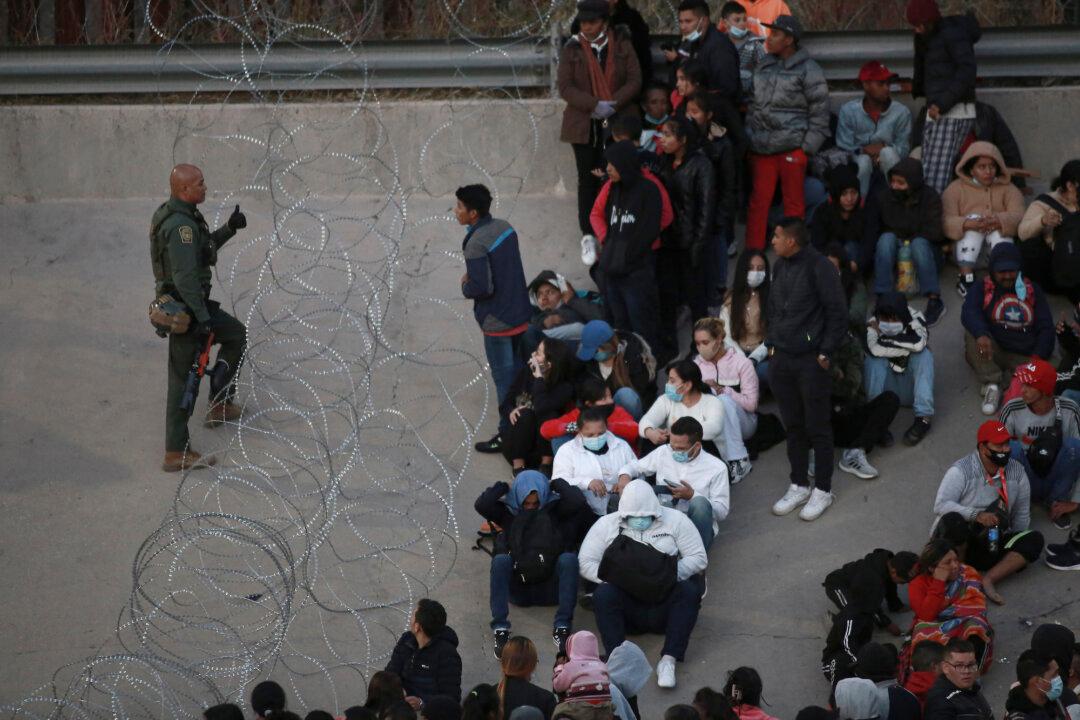With the illegal immigration crisis continuing into the new year, the Texas National Guard has ramped up its efforts to secure the border by installing additional layers of razor wire in high-traffic areas.
Texas Gov. Greg Abbott said on Jan. 2 that the state’s National Guard troops are “working around the clock” to plug gaps in the U.S.–Mexico border and reduce the number of crossing points used by people to enter the United States illegally.





